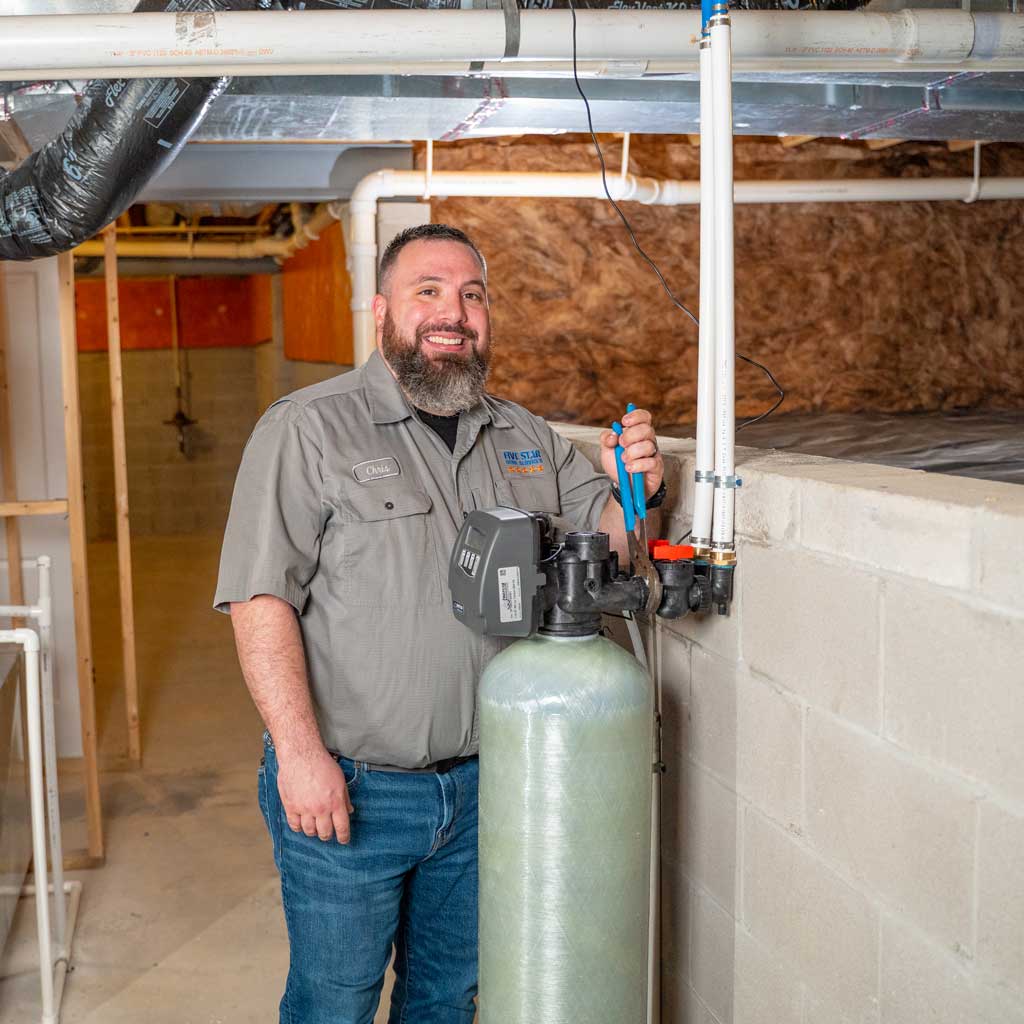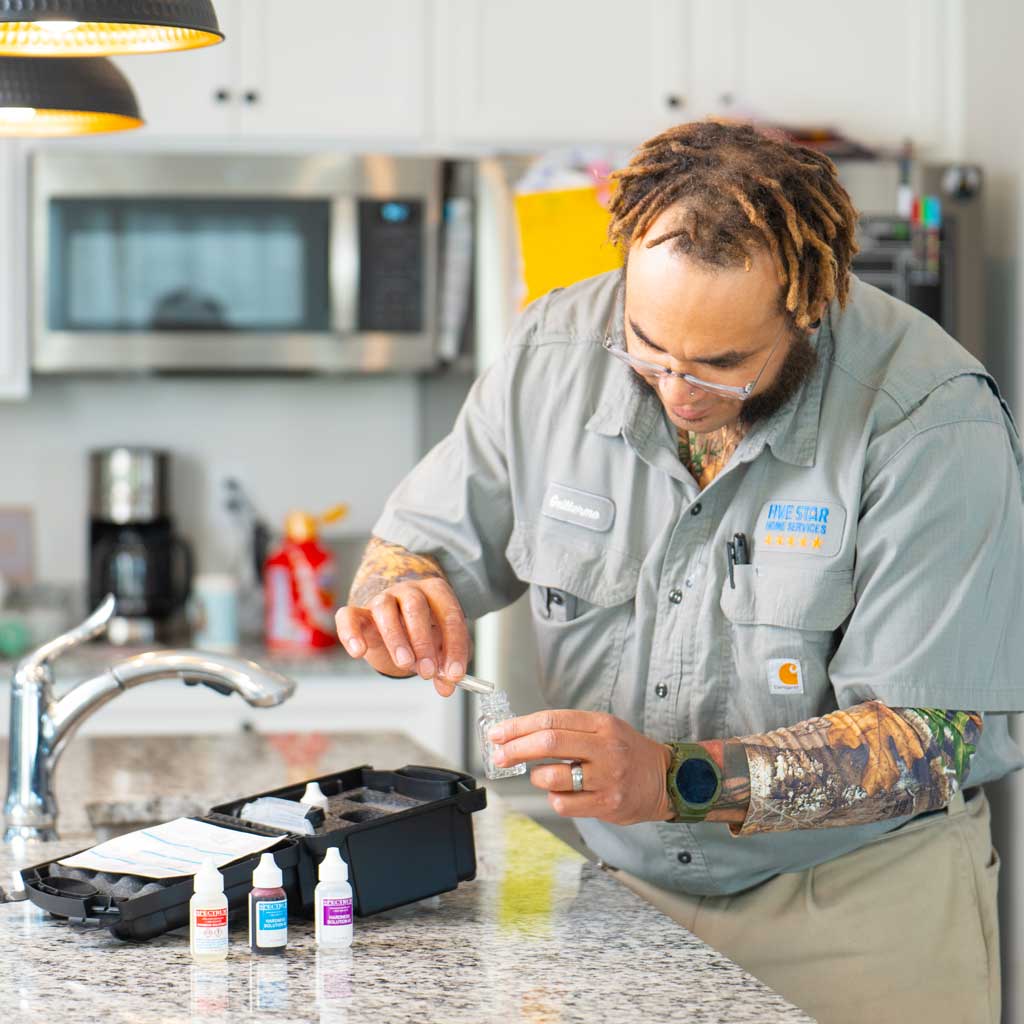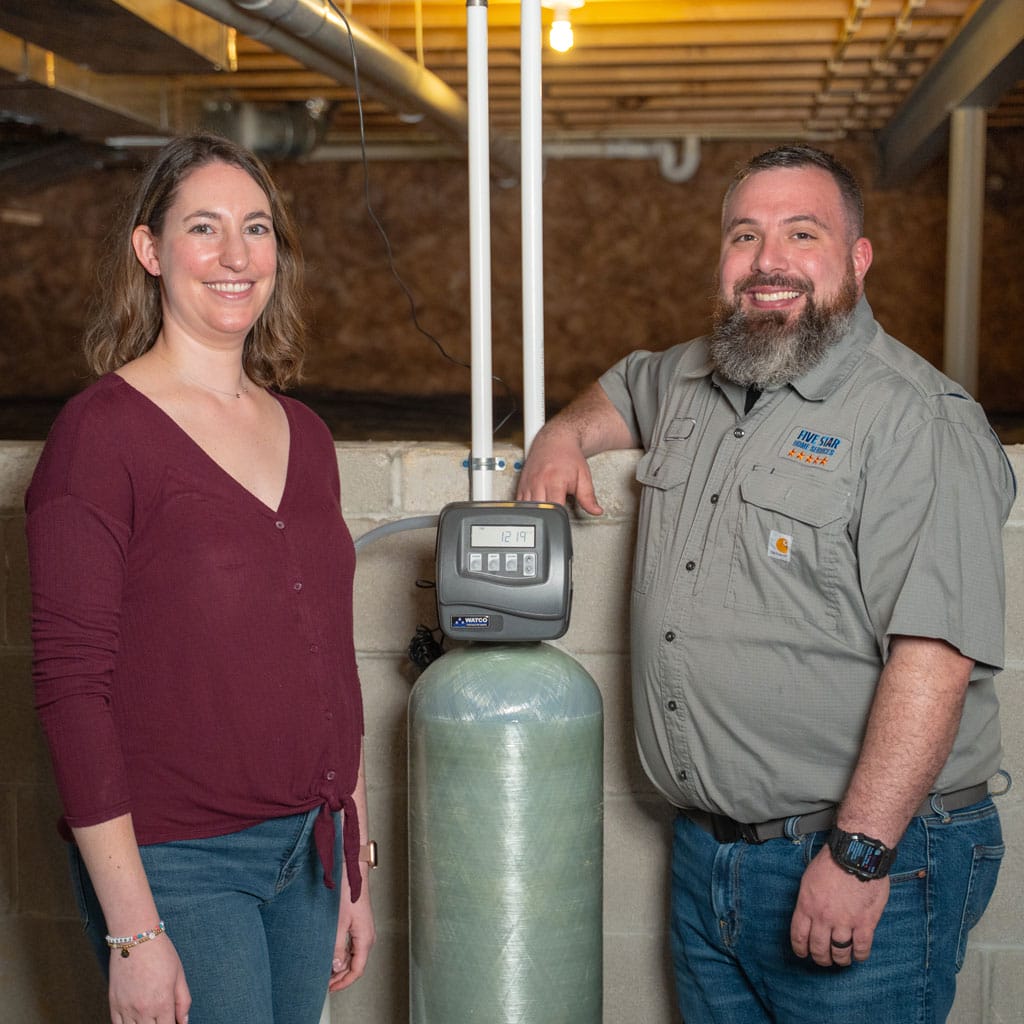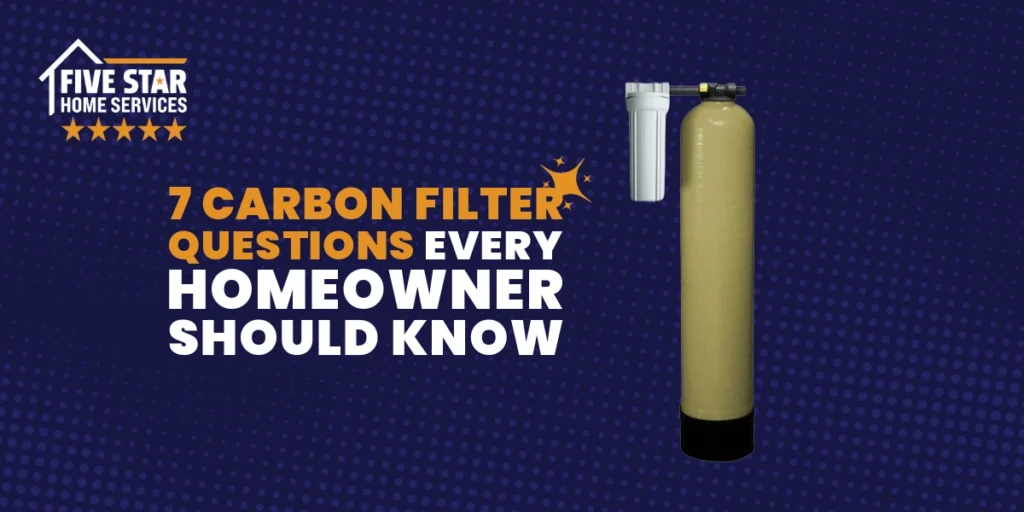Thinking about adding a carbon filter to your home? We’ve answered the 7 most important questions every homeowner should know, from how they work and what they remove to cost, lifespan, and the best type for your water needs.
When choosing the right carbon filter for your home, it’s important to understand what it is, how it works, what it removes, how much it costs, how long it lasts, and which type best fits your water quality and household needs. Clean, safe, and great-tasting water in Ohio isn’t a luxury; it’s a necessity.
For many Ohio homeowners, the quality of tap water can be a real concern. From lingering chlorine taste issues in Columbus and odor to occasional pesticide or even VOC concerns in Dayton, many are turning to carbon filters as a simple, effective way to safeguard their home’s water. In this guide, we answer the 7 carbon filter questions we believe every homeowner should know.

1. What Is a Carbon Filter, and Why Do I Need One?
A carbon filter is a type of water filtration system that uses activated carbon to improve water quality. It removes harmful contaminants and unwanted odors, leaving your water cleaner and fresher. Whether you’re drinking from the tap or washing your hands, you’ll notice the difference.
Installing a carbon filter comes with many benefits. It eliminates chlorine, metallic flavors, and unpleasant smells, making your water more enjoyable. It also removes common contaminants like chlorine, pesticides, and volatile organic compounds (VOCs), making your water safer for your family. More than just an upgrade, a carbon filter is a smart way to protect your home’s water supply.
2. What Does a Carbon Filter Do?
A carbon filter traps contaminants in its activated carbon material, similar to how a sponge soaks up water. As water flows through the carbon filter, chemicals, chlorine, herbicides, and VOCs get absorbed, leaving cleaner, fresher water behind.
These filters also remove unpleasant tastes and odors, ensuring every glass of water is crisp and clean. So, whether you’re cooking, drinking, or bathing, the improvement in water quality is noticeable.
3. How Does a Carbon Filter Work?
Carbon filters use activated carbon, a highly porous material, to trap impurities. The activation process creates millions of tiny pores, increasing the carbon’s surface area to absorb harmful chemicals and contaminants.
As water flows through the filter, these impurities bind to the carbon while clean water passes through. This simple yet effective process has been trusted for decades to provide safer, better-tasting water.
4. How Much Does a Carbon Filter Cost, What Should I expect?
If you’re wondering about carbon filter cost, prices vary depending on size, type, and function. Here’s a general breakdown of all costs involved:
- Filter Costs:
- Undersink Carbon Filters (for targeted water filtration): $50–$150
- Whole-House Carbon Filters (for clean water from every tap): $300–$2,500 or more, depending on the brand and capacity
- Installation Costs: The cost to install a carbon filter ranges from $200–$500. Smaller filters can sometimes be DIY-installed, but we recommend leaving larger, whole-house systems to the professionals to ensure a proper setup.
- Maintenance Costs: Carbon filters require regular maintenance to keep them effective. Here’s what to budget annually for replacements:
- Undersink Filters: $30–$100 per year
- Whole-House Filters: $50–$125 per year
- Total Cost: For the filter, installation, and first-year maintenance, here’s what to expect in Columbus, Dayton, and Cincinnati. Keep in mind that the exact cost depends on the filter’s size, quality, and complexity of installation.
- Undersink Carbon Filters: $280–$750
- Whole-House Carbon Filters: $800–$2,500
5. What Does a Carbon Filter Remove?
Carbon filters are highly effective at targeting and removing a wide range of contaminants, making your water taste and smell much better while improving its safety. Typical impurities a carbon filter removes include:
- Chlorine (responsible for the chemical taste in many municipal water supplies)
- Herbicides and Pesticides often found in untreated water
- VOCs (volatile organic compounds), which can enter water through industrial pollution
- Particles and Debris (like dirt, rust, or sand)
While they’re excellent at tackling these issues, carbon filters might not address heavier contaminants like lead or bacteria, so it’s worth testing your home’s water quality beforehand to see if additional solutions are needed.
6. How Long Does a Carbon Filter Last?
The lifespan of a carbon filter depends on its size, usage, and the quality of your water. Here’s a good rule of thumb to know what to expect:
- Under-Sink Filters last around 6–12 months before needing replacement.
- Whole-House Filters can last 12–18 months, but high usage or heavily contaminated water may shorten this timeline.
Replacing your filter on schedule is key to maintaining its effectiveness, so keep an eye on the manufacturer’s guidelines.
7. What Type of Carbon Filter Should I Get?
Not all carbon filters are created equal, so how do you find the right one? Here are some key factors to consider:
- Water Quality: Have your water tested to identify any contaminants. This helps you choose a filter designed to target those specific issues.
- Household Size: Larger households often need filters with higher capacity to ensure optimal performance.
- Filter Type: Decide whether you want to go with an under-sink filter for targeted filtration or a whole-house filter for all-in-one coverage.
- Brand Quality: Stick to trusted brands known for reliable performance and high-quality products

Still unsure if you need a carbon filter? Don’t stress! We’re here to help you find the best water filtration solution for your home. Our experienced team can recommend the perfect filter for your home and handle the installation for you. Get your free water quality test scheduled today and find out what’s in your water!
Why Are Carbon Filters Essential for Ohio Homes?
Now here’s the golden question. If you are a homeowner who lives in Columbus, Dayton, Cincinnati, or surrounding Ohio communities, chances are pretty high that you’ve experienced the effects of hard water or high chlorine levels in your tap water.
Many Ohio municipal water supplies are treated with chlorine to kill bacteria, but that can leave behind strong tastes and odors. Rural areas and private wells may face pesticide or VOC contamination from agricultural runoff. Installing a carbon filter in your Ohio home is one of the most effective ways to remove these local water concerns, giving you cleaner, fresher, and safer water every day. As you locally trusted plumber, we specialize in water filtration systems tailored to Ohio’s unique water challenges, so you can trust that your family’s water is protected.
Still not convinced? Listen to this.
Jordan Posner of @midwestfoodfest was shocked to learn that her home’s water had chlorine levels comparable to a swimming pool. Crazy, right? Believe it or not, it happens more often than you’d think! Concerned for her family’s health, she turned to Five Star Home Services for a solution. After installing a whole-house carbon filter from Five Star Home Services, Jordan and her family now enjoy safer, cleaner water, free from harsh chlorine and full of peace of mind.

From how carbon filters function to what they remove, how long they last, and which type is right for your home, you now have the knowledge to make a confident choice for cleaner, safer water. Adding a carbon filter to your home is an investment in your health, comfort, and overall quality of life. At Five Star, we specialize in making that process effortless.
Ready to take the next step and find out what type of carbon filter you need? Call us at (833) 405-8009 or book your appointment online now. Clean, refreshing water is closer than you think, so why wait? When you can have your water quality fixed fast, with Five Star.
FAQs
1. How do I know if I need a carbon filter for my home’s water?
If your water has a chemical taste, unpleasant odor, or visible particles, a carbon filter can help. These filters remove chlorine, VOCs, pesticides, and other impurities, improving both taste and safety. A professional water test can confirm if a carbon filter is the right solution for your needs.
2. Can a carbon filter remove all contaminants from water?
While carbon filters are excellent at removing chlorine, certain chemicals, and unpleasant tastes and odors, they may not eliminate heavy metals like lead or microorganisms like bacteria. For complete protection, a water quality test can help determine if you also need a secondary filtration system, such as reverse osmosis or UV treatment.
3. How often should I replace my carbon filter?
Most under-sink carbon filters need replacement every 6–12 months, while whole-house systems typically last 12–18 months. However, heavy water usage or high contaminant levels may require more frequent changes. Always follow the manufacturer’s recommendations to keep your filter performing at its best.


